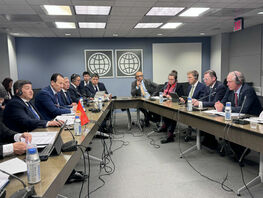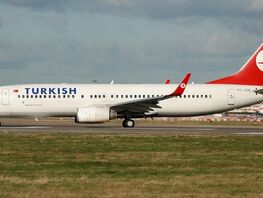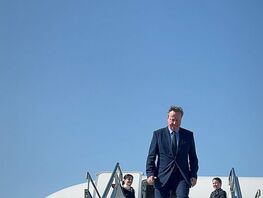The Internet in
Internet freedom declined in 2017 after news outlets faced pressure and legal sanctions over criticism of officials, including the president. In 2016, Kyrgyzstan scored 35 points.
Internet freedom has improved in recent years, with fewer restrictions since the overthrow of President Kurmanbek Bakiev’s regime in 2010. But some restrictions have crept back. The authorities have proven sensitive to criticism, forcing an online news outlet to remove articles critical of the president. Meanwhile, critical online journalists have faced disproportionate fines for their reporting.
Though the government does not engage in widespread censorship, the authorities used anti-extremism rules to justify blocking a handful of websites, including the entire Internet Archive, a digital library. In some instances, internet users were prosecuted for criticizing the government online and for «liking» controversial content on social media.
Like many states in the former Soviet Union, the Kyrgyzstan uses SORM technology for surveillance purpose, and recently required all ISPs and mobile providers to install the latest version of SORM to facilitate government surveillance. Evidence indicates that the government is abusing this technology to monitor the political opposition.
Internet access in Kyrgyzstan is relatively limited, though internet penetration continues to increase, with the introduction of unlimited plans by mobile operators and the development of 4G services helping to improve access.
While the government does not systematically block or filter content, an online outlet was forced to remove articles that criticized the President within the coverage period. The government generally focuses its online censorship efforts on content deemed extremist, and a number of websites were newly-blocked in the past year.
Online platforms such as forums and social networks are actively used for manipulating public opinion, usually by trolls hired by different political actors to influence discussions and express favorable views.
While internet users are not generally imprisoned for their expression, a growing number of users faced fines and other legal sanctions for critical expression online in this coverage period.
Authorities in Kyrgyzstan have responded to the threat of international terrorism by passing legislative amendments which expand the state’s power to crack down on a wider range of activities. The amended Law on Counteracting Extremist Activities criminalizes public expressions of approval and justification of extremism or terrorism, raising concerns about possible restrictions on legitimate expression online.
In the report Freedom on the Net, Russia received 66 points, Belarus — 64, Ukraine — 45, Kazakhstan — 62, Uzbekistan — 77, Germany — 20, the United States — 21, United Kingdom — 24, Canada — 15.
The best situation is in
Freedom on the Net measures the overall level of freedom in the field of electronic communications. Each of the 65 countries evaluated receives a certain indicator on a 100-point scale (0 — the most free, 100 — the most unfree).






